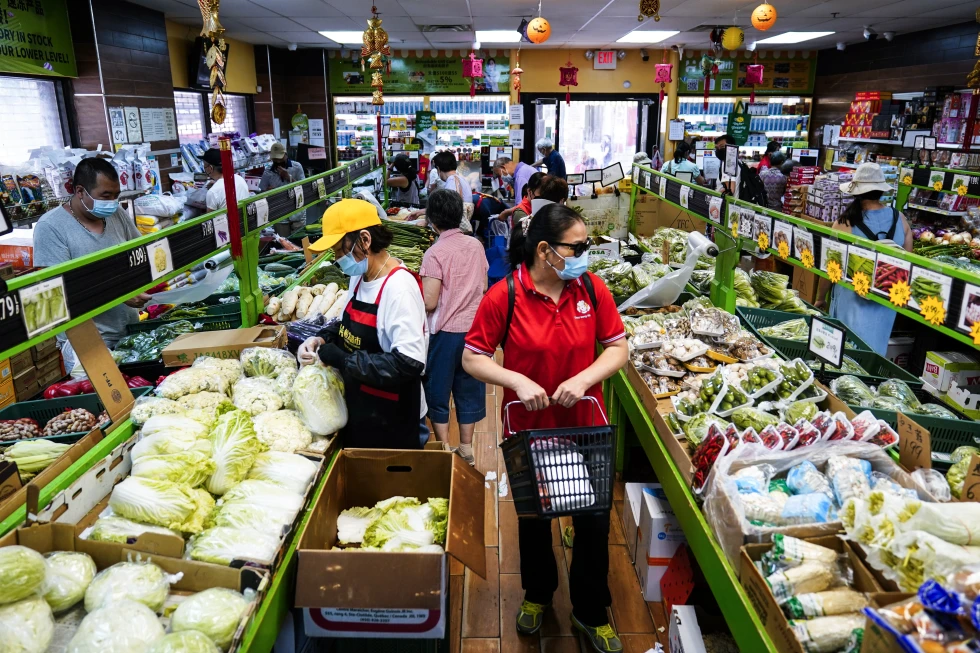
Asian Americans and Pacific Islanders in the United States are somewhat more optimistic than the overall adult population about their personal finances, but recent polling shows the outlook isn’t quite as sunny when it comes to keeping up with household expenses or unexpected medical costs.
A new poll from AAPI Data and The Associated Press-NORC Center for Public Affairs Research finds that 62% of U.S. Asians and Pacific Islanders say their household’s financial situation is good, slightly higher than the 54% of all U.S. adults who said that in an October AP-NORC poll. But only about one-quarter of Asian American and Pacific Islander adults are extremely or very confident they would be able to pay for a sudden medical expense. That is in sync with 26% of U.S. adults overall. Meanwhile, 4 in 10 are “not very” or “not at all” confident.
When it comes to the ability to maintain household expenses, only 3 in 10 AAPI adults are highly confident they can do so. An additional 46% are “somewhat confident” and 23% have “little to no confidence.”
Stan Kilpatrick, a 65-year-old Republican in Altadena, California, runs a limo service. His client base, which includes the University of Southern California, has gone down because more events and meetings with guest speakers and groups are happening virtually. Meanwhile, the cost of auto insurance and fuel continues to rise.
“Much of the money that I was saving for retirement has gone into the day-to-day expenses as the business has gone down,” said Kilpatrick, who is half Chinese. He also has a 23-year-old daughter living at home and is “absolutely terrified” because of what things cost right now. I feel for her because if you’re just starting out, it’s like you really are stuck in the land of the roommate.”
He is somewhat confident he could weather an unforeseen payment like a health-related need. But that is only because of the health insurance coverage he has as an Army veteran.
“They’re able to spread the cost. So, that does help but ultimately out of pocket, I’m not necessarily sure that the Veterans Administration will be there for me,” Kilpatrick said.
Karthick Ramakrishnan, a public policy professor at the University of California, Riverside and founder of AAPI Data, said concerns about health costs and medical debt are clearly high priorities in the Asian American and Pacific Islander community. There are more multi-generational AAPI households compared to the U.S. average, and these households are more likely to include foreign-born grandparents who don’t qualify for Medicare.
The weight of medical costs is emotional too, Ramakrishnan said.
“There is just the sense of familial obligation that tends to be fairly high in many Asian, Asian American cultures,” he said. “You look at a population that on average has higher incomes, but they’re not much more likely than the U.S. average to say that they’ll have enough savings for retirement — 22% versus 18%.”
When it comes to the nation’s economy as a whole, 65% of AAPI adults characterize it as at least somewhat poor. That aligns with 69% of the general U.S. adult population in a December AP-NORC poll. Furthermore, about 4 in 10 AAPI adults believe the economy will only get worse in the next year. Only about 2 in 10 think it will actually improve. But they mostly follow party lines when it comes to how President Joe Biden is handling the economy, inflation, jobs and student debt.
About half identified as Democrats, about one-quarter as Republicans and 2 in 10 as independents.
About 4 in 10 AAPI adults expressed approval with how Biden is handling the economy. But only 34% of U.S. adults approve of his performance on the economy. A majority of AAPI adults — 55% — approve of how Biden is handling jobs. Only 32% approve of how he is dealing with cost inflation. On student debt, 45% approve of him. That is on par with the 41% of U.S. adults overall who approved in the October poll.